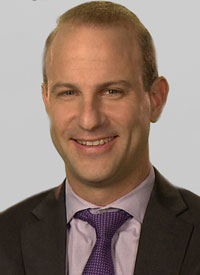 During a presentation on advanced non-small cell lung cancer (NSCLC), Ben Levy, M.D., a thoracic medical oncologist and the clinical director of medical oncology for the Johns Hopkins Sidney Kimmel Cancer Center at Sibley Memorial Hospital, said there is a new opportunity for clinicians to be more specific when targeting mutations in those cancer patients.
During a presentation on advanced non-small cell lung cancer (NSCLC), Ben Levy, M.D., a thoracic medical oncologist and the clinical director of medical oncology for the Johns Hopkins Sidney Kimmel Cancer Center at Sibley Memorial Hospital, said there is a new opportunity for clinicians to be more specific when targeting mutations in those cancer patients.
"Adenocarcinoma (the most common type of lung cancer) now can be parsed out into molecular subsets, and based on the molecular subsets identified, they can be wed to a targeted therapy," Levy said in a OncLive story. "The story of molecular profiling began with EGFR and ALK, but that is the tip of the iceberg. We now have other actionable mutations, like ROS1 and BRAF, that have approved therapies."
Although next-generation sequencing is a beneficial option, Levy noted that the turnaround time is often long. There are also issues with tissue procurement. Traditional tissue biopsies are invasive, and there are questions regarding tissue stewardship. Additionally, every institution has a different way of reporting results from the tissue biopsy.